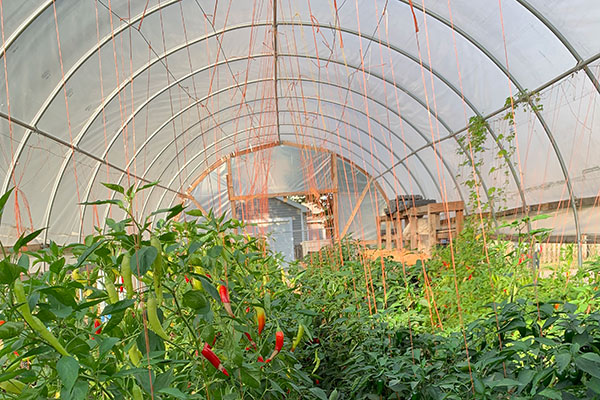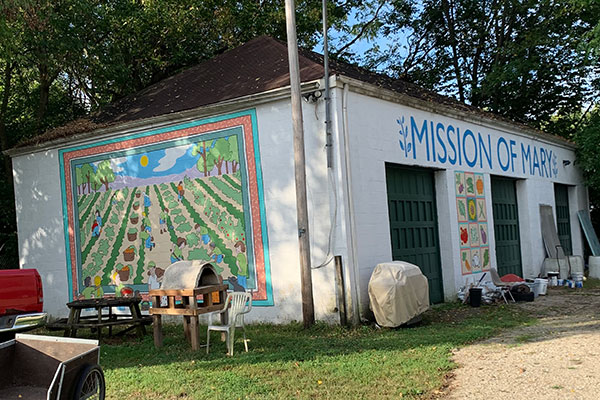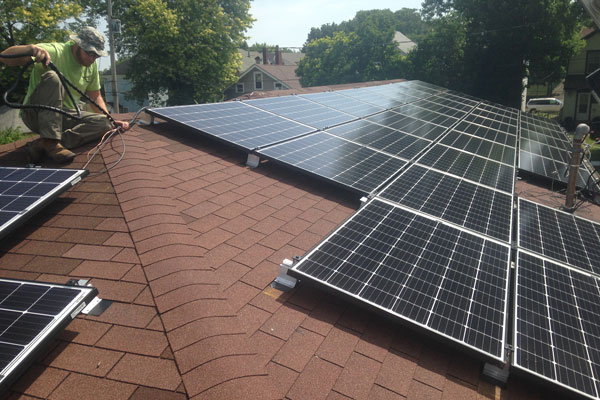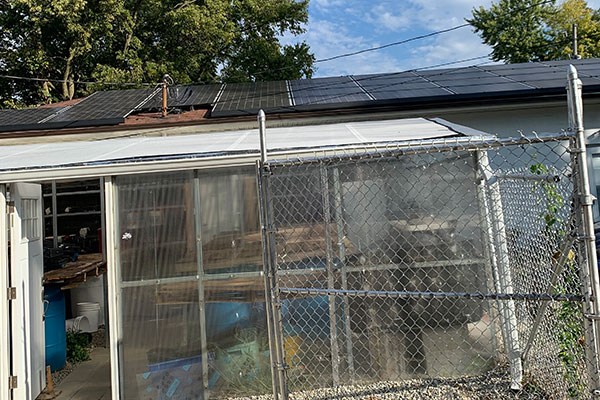Dayton Engineer
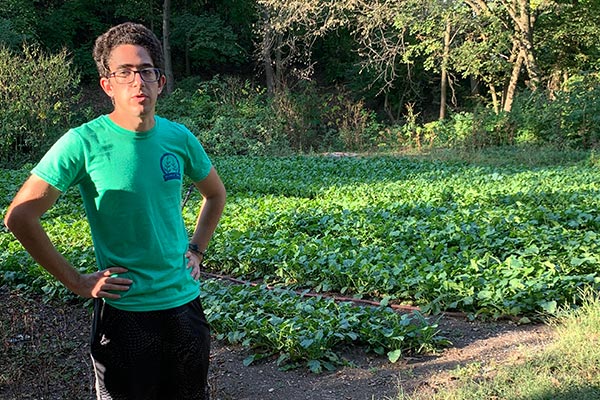
University of Dayton Engineering Students Help Mission of Mary Cooperative Become First Net-Zero Energy Organization in Dayton
By Shawn Robinson, University of Dayton associate director of news and communications
University of Dayton engineering students have helped Mission of Mary Cooperative, a Dayton-based urban farming operation, become the city's first net-zero energy organization through the New Buildings Institute, a third-party non-profit organization pushing for better energy performance in buildings.
The Cooperative produced 52,000 pounds of food last year on its 2-acre campus in the Twin Towers neighborhood, while operating on 100 percent renewable energy.
"By becoming the first net-zero organization in Dayton, Mission of Mary Cooperative hopes to inspire other organizations and residents all while continuing to be a catalyst and partner for urban sustainable development," says Michael Schulz, executive director of Mission of Mary Cooperative and one of its lay Marianist founders.
Mission of Mary Cooperative (MMC) began its journey to become net-zero in 2017.
Joseph Dubois, then a UD civil engineering student and MMC intern, had a passion for construction and sustainability and joined Schulz and others to gut and remodel the farm's main facility, significantly reducing its energy needs. Changes included the installation of LED lights, better insulation, energy efficient windows and doors, and efficient thermostat settings.
In spring of 2018, Mission of Mary installed a two-ton geothermal HVAC system to provide all heating and cooling needs. That same year, after crowdfunding $32,000 with the help of RE-Volv, a national nonprofit that helps finance solar projects, and 10 UD "solar ambassadors," MMC installed an 11.5 kW solar panel array on its roof. The array provides enough electricity to complete the vision.
Along the way, University of Dayton engineering students were crucial to moving the project forward. The ETHOS Center provided funded interns, Innovation Center students performed senior design projects, including a solar energy storage project, and renewable and clean energy engineering master’s degree students helped determine the future energy load and analyze data.
After engineering students tracked energy usage and production for more than a year, the organization was able to verify it produced more renewable energy than it used.
"The School of Engineering has been a tremendous partner in this journey to becoming net zero," Schulz said. "The passion, energy and dedication of the students, faculty and staff has been incredibly beneficial."
The completion of this milestone marks another step in Mission of Mary's journey to develop partnerships for sustainable urban development, according to Schulz.
"We are proving to our neighborhood and our city how sustainable development can support our operations in a way that respects nature, the needs of the neighborhood and future generations - a transformation they hope becomes part of the fabric of Dayton," he said.

